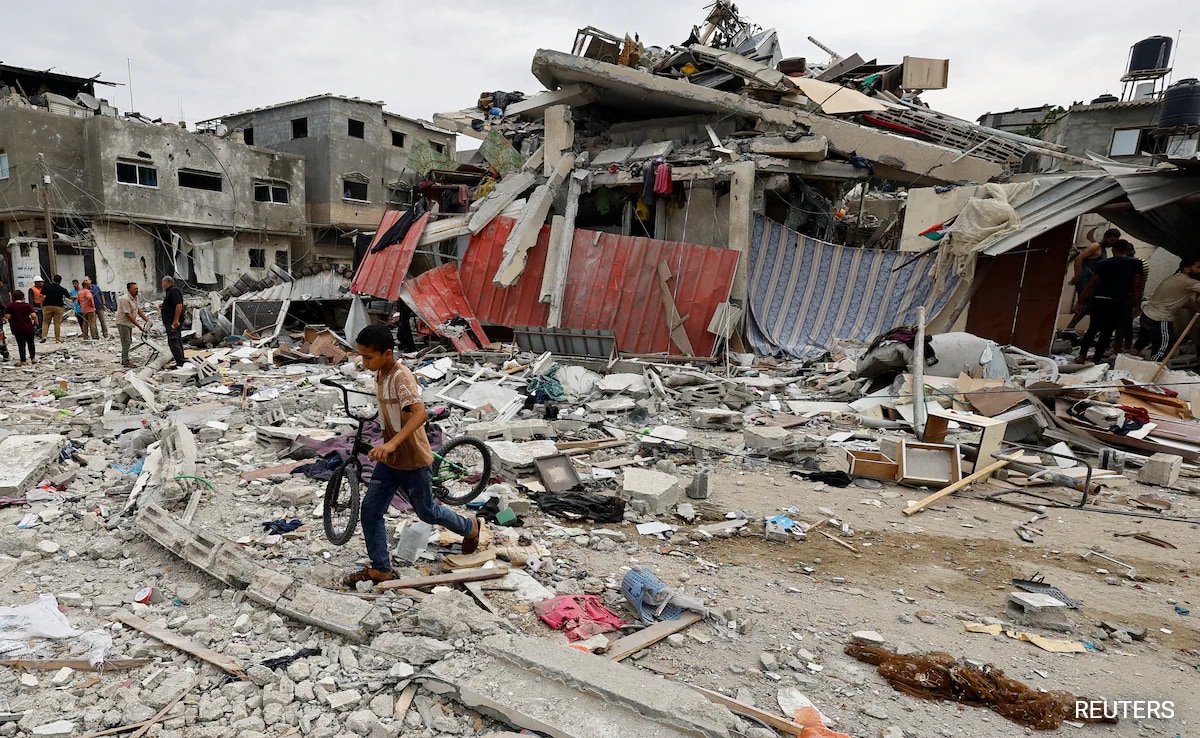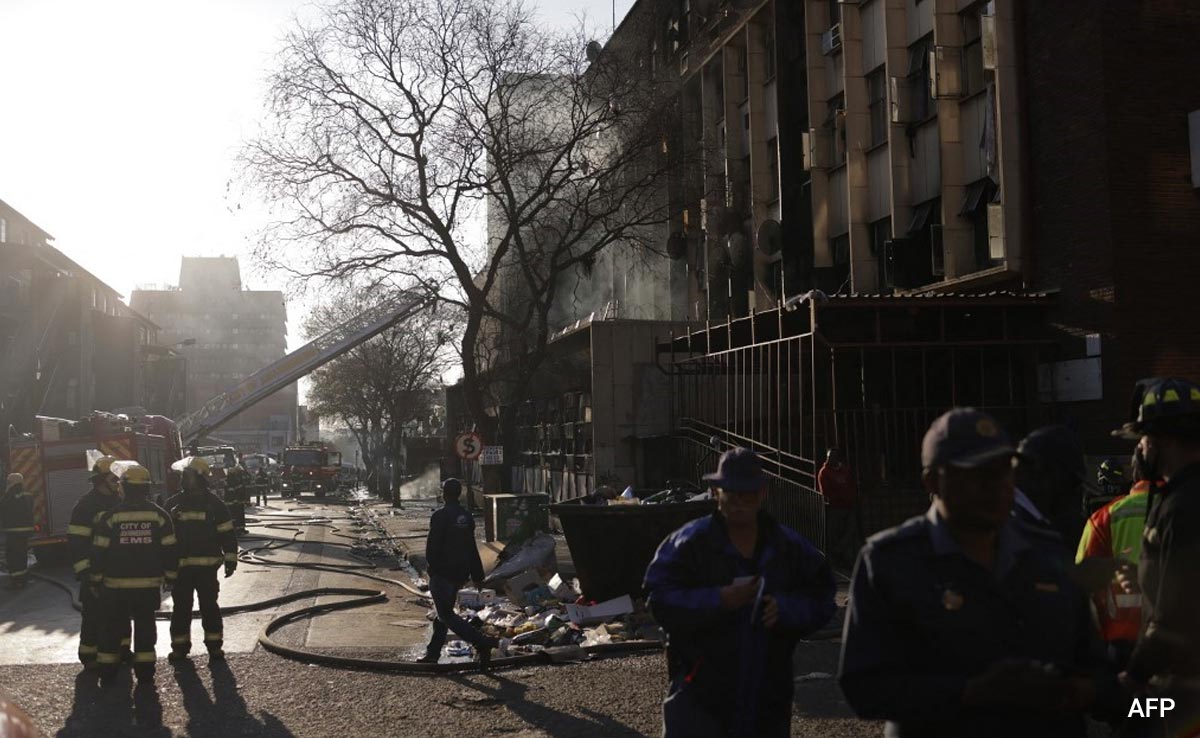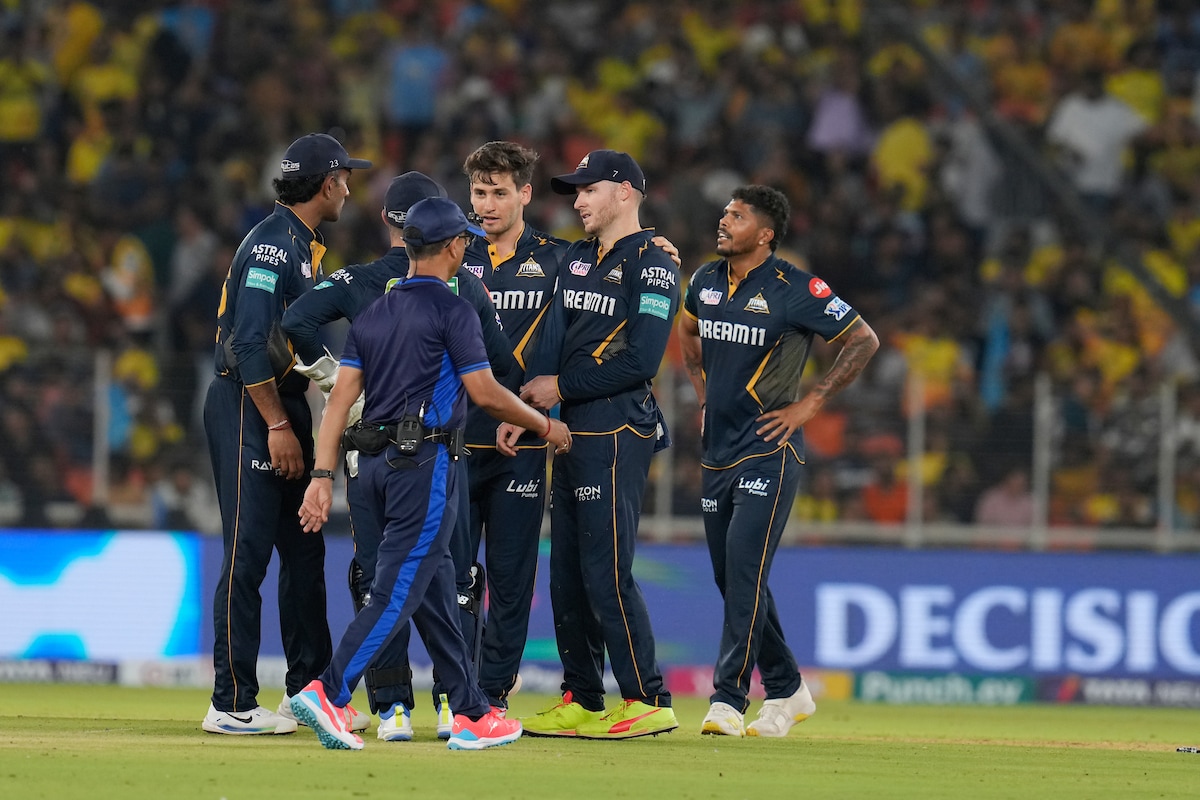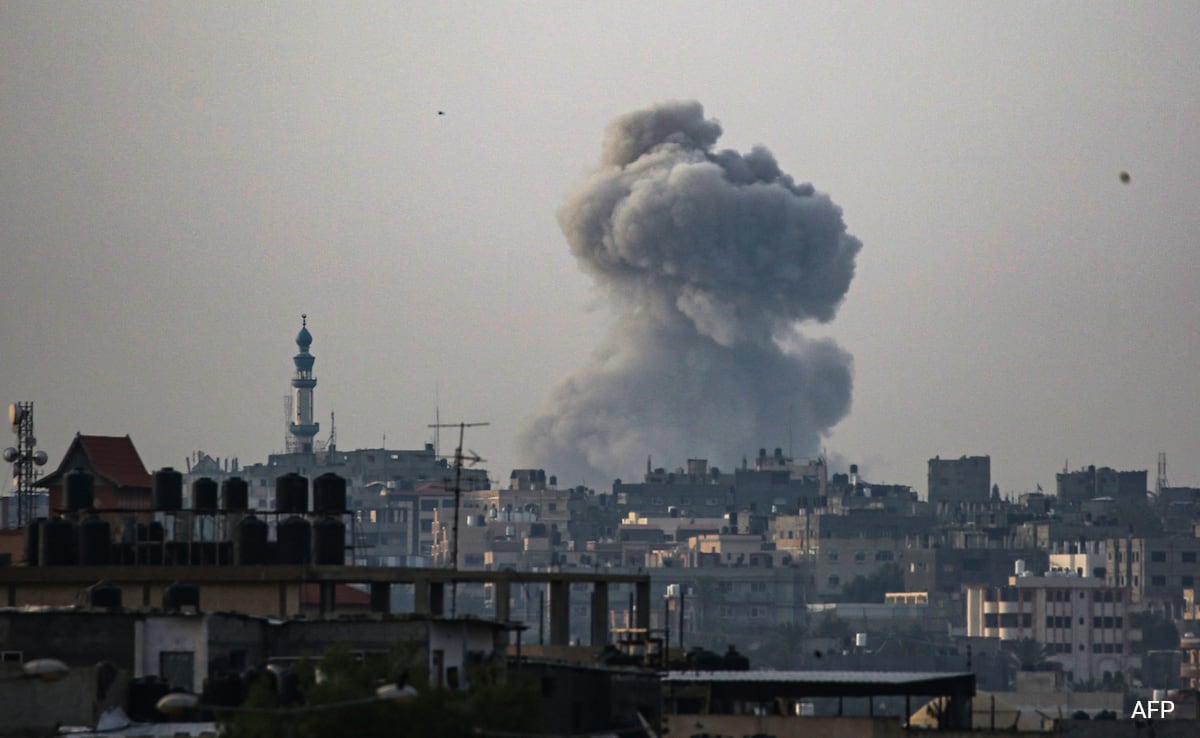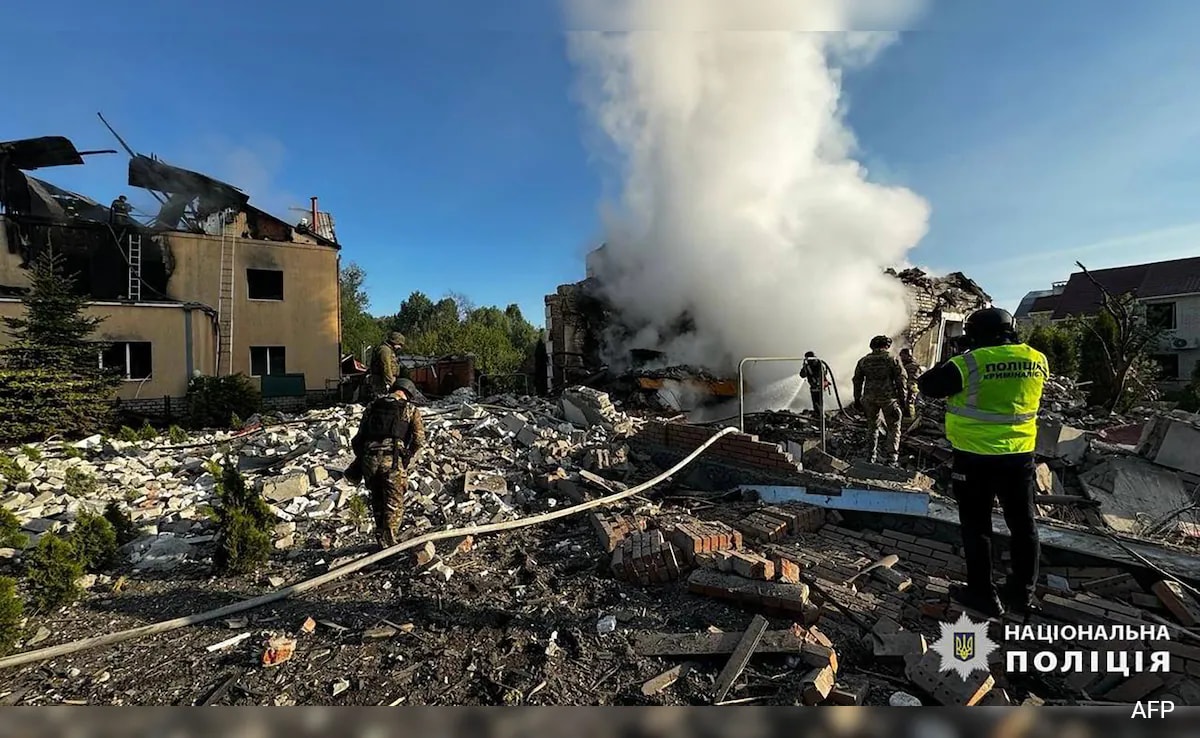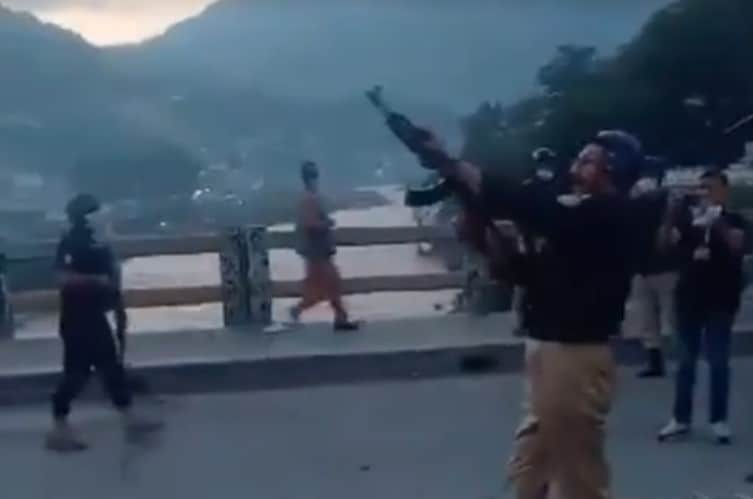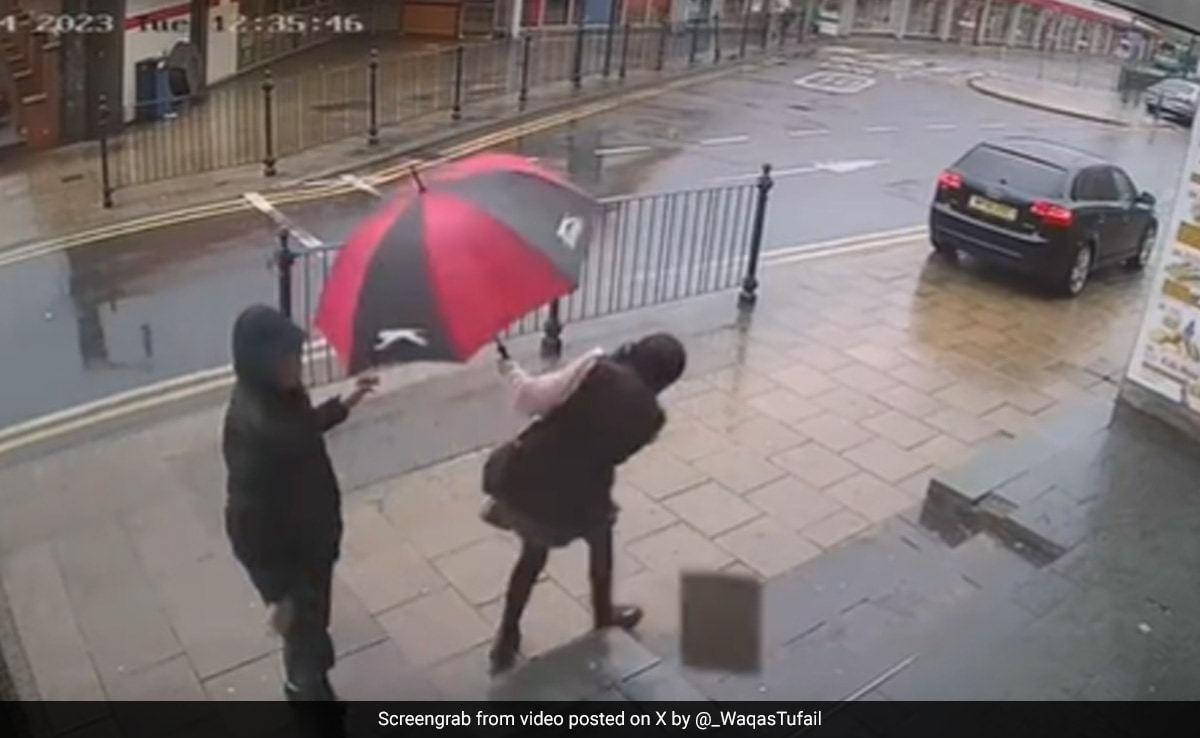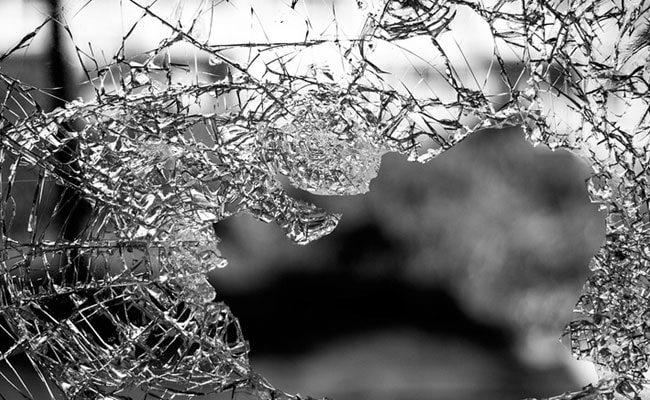An Israeli strike killed 31 people and wounded 20 in a home in the Nuseirat refugee camp
Rafah, Palestinian Territories:
An Israeli strike killed 31 people in central Gaza Sunday, the Palestinian territory’s civil defence agency said, as US National Security Advisor Jake Sullivan visited for talks on the conflict.
Israeli troops have moved in on the Gaza Strip’s far-southern city of Rafah, which the army describes as the last Hamas stronghold and where the United States says 800,000 civilians have been newly displaced by the fighting.
Hamas’s armed wing, the Ezzedine Al-Qassam Brigades, said it was targeting Israeli forces stationed at Rafah crossing — a vital conduit for humanitarian aid that is now closed — with mortar fire.
Israel has also fought and bombed resurgent Hamas forces in northern and central areas of the coastal territory previously considered to be under army control, sparking US warnings that it could become mired in a lengthy counterinsurgency campaign.
In the latest aerial bombardment overnight, Gaza’s civil defence agency said an Israeli strike had killed 31 people and wounded 20 in a home in the central Nuseirat refugee camp.
Israel’s military, which on Sunday reported its aircraft had “struck dozens of terror targets” over the past 24 hours, said it was checking the reports.
Witness Yasser Abu Oula told AFP an entire residential complex “was destroyed” and “there are still bodies under the rubble”.
Jake Sullivan meets Benjamin Netanyahu
Israel’s Prime Minister Benjamin Netanyahu has vowed to keep fighting Hamas in Gaza, following its October 7 attack that sparked the war, until the Iran-backed Islamist group is defeated and all remaining hostages are released.
But he has faced intense opposition and calls to announce a plan for Gaza’s post-war governance — from top ally Washington, from mass street protests and now also from members of his war cabinet.
Amid the political turmoil, Sullivan met his Israeli counterpart Tzachi Hanegbi and Netanyahu in Jerusalem for talks on the brutal Gaza conflict and post-war scenarios.
He briefed Netanyahu on the “potential” of a normalization deal between Israel and Saudi Arabia after holding talks in the region, the White House said Sunday.
Sullivan also called on the Israeli prime minister to link the military operation against Hamas in Gaza with a “political strategy” for the future of the Palestinian enclave, it added.
Washington has pushed for a post-war plan for Gaza involving Palestinians and supported by regional powers, as well as for a broader diplomatic deal under which Israel and regional powerhouse Saudi Arabia would normalise relations.
Israel’s Centrist politician Benny Gantz threatened Saturday to quit the governing hard-right coalition over just this issue. He has called for Netanyahu to approve a post-war “action plan” by June 8.
Gantz demanded steps to defeat Hamas, to bring home the hostages, and towards forming an “American, European, Arab and Palestinian administration that will manage civilian affairs in the Gaza Strip”.
Netanyahu has dismissed Gantz’s comments, saying they would lead to “a defeat for Israel” and “the establishment of a Palestinian state”, which he fiercely opposes.
‘Day after’ scenarios
US President Joe Biden called Sunday for an immediate Gaza ceasefire and said he was pushing for a regional peace deal “to get a two-state solution, the only solution”.
The Gaza war broke out after Hamas’s unprecedented October 7 attack on Israel, which resulted in the deaths of more than 1,170 people, mostly civilians, according to an AFP tally based on Israeli official figures.
Hamas also took about 250 hostages during the October 7 attack, of whom 124 remain held in Gaza including 37 the army says are dead.
Israel’s retaliatory offensive against Hamas has killed at least 35,456 people in Gaza, also mostly civilians, according to data provided by the Hamas-run territory’s health ministry.
In central Israel on Sunday, mourners gathered for the funeral of German-Israeli Shani Louk, 22, whose body was recovered Thursday from Gaza by troops who also took back three other dead hostages.
‘Almost’ no aid
Israel has imposed a siege on the long-blockaded Gaza Strip, depriving its 2.4 million people of normal access to clean water, food, medicines and fuel, the suffering eased only by sporadic aid shipments by land, air and sea.
The head of the UN agency helping Palestinians said that “despite all the calls by the international community not to launch an offensive in Rafah, in reality an offensive started on May 6”.
Since then, “we have again about half of the population of Gaza being on the road forced to flee” for safety once more, though “we keep saying there is absolutely nowhere to go,” UNRWA chief Philippe Lazzarini told reporters in Amman.
Lazzarini said that because of the fighting, “almost nothing in terms of aid is crossing” into Gaza, raising fears that recent gains made “to prevent a looming famine … might quickly be reversed”.
Truck arrivals have slowed after the Rafah crossing with Egypt closed when Israel launched its operation in the city.
After a series of attacks on Gaza-bound trucks in Israel, a group of Israeli activists on Sunday travelled with an aid convoy to protect it, an AFP correspondent said.
Aid has also begun entering via a temporary US-built floating pier, where shipments sent from Cyprus are offloaded for distribution.
The United Arab Emirates said Sunday a shipment of 252 tonnes of aid had been unloaded after arriving from the Cypriot port of Larnaca.
The UN’s humanitarian chief Martin Griffiths warned that if dire fuel shortages were not alleviated, the “famine which we have talked about for so long, and which is looming, will not be looming anymore. It will be present”.
“Our worry … is that the consequence is going to be really, really hard,” he told AFP in Qatar. “Hard, difficult, and apocalyptic.”
(Except for the headline, this story has not been edited by NDTV staff and is published from a syndicated feed.)
Waiting for response to load…





